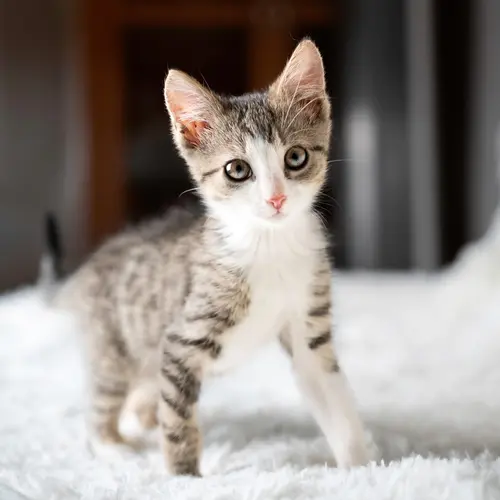Your cat is curious, sticking their nose into random places. But their exploration may expose them to some not-so-obvious dangers in your home. It just takes a bit of time and know-how to “cat-proof” your house so your kitty stays healthy and safe.
Human Medicines
Some human over-the-counter and prescription medicines pose serious threats to cats, so keep them in a place they can’t get into, including:
- Antidepressants
- Cancer medicines
- Cold medicines
- Diet pills
- Pain relievers (acetaminophen, aspirin, ibuprofen)
- Vitamins and other supplements
You may have heard that some common medicines work for people and cats. Never give your pet any pills without first talking to your vet, though -- it's easy to give them the wrong medicine or too much, which can kill them.
Also, some medications with active ingredients that are not toxic have inactive ingredients or additives that are toxic.
Human Foods
Your kitty may beg when you sit down to eat (or try to steal some bites when you’re not looking), but some human foods can be poisonous for them, including:
- Alcohol
- Caffeine (coffee, soda, tea)
- Chives
- Chocolate
- Garlic
- Grapes
- Onions
- Raisins
- Xylitol (found in sugarless gums, candies, toothpastes)
- Yeast dough
Indoor and Outdoor Plants
Common houseplants -- and a few others that you may bring into your home -- can be hazardous to your cat's health, including the following:
- Aloe
- Azalea
- Chrysanthemum
- Hyacinths
- Lily
- Marijuana
- Mistletoe
- Rhododendron
- Sago Palm
- Tulip
Insecticides and Other Chemicals
Some chemicals taste especially good to cats. To keep them safe, keep any chemicals locked away, especially:
- Antifreeze
- Bleach
- Detergents
- De-icing salts (which pets may walk through, then lick from their pads)
- Dog flea and tick medication (pills, collars, spoot-on flea treatments, sprays, shampoos)
- Fertilizers
- Herbicides
- Insect and rodent bait
More Household Hazards
Watch out for common household items that can choke or strangle your cat. Some may even block their intestines if they swallow them.
- Chicken bones
- Dental floss, yarn, or string
- Holiday decorations, including lights and tinsel
- Toys with small or movable parts
If Your Cat’s Been Poisoned
Every moment matters if you think your cat has been exposed to something toxic.
Call your vet. Post the clinic’s phone number in an obvious place, along with the number for the Animal Poison Control Center: (888) 426-4435. They can help you know what to do next.
Collect samples. Take samples of vomit, stool, and the poison your cat ate to the vet with your cat.
Watch for symptoms. Often, cats will show these signs right away. But some symptoms can show up more gradually. Signs to watch for include:
- Breathing problems
- Confusion
- Coughing
- Depression
- Diarrhea
- Dilated pupils
- Drinking more and urinating more
- Upset stomach
- A lot of saliva
- Seizures
- Shivering
- Skin irritation
- Tremors
- Vomiting
- Weakness
Educate. After your cat recovers, call your poison control center or humane society to let them know what happened, so they can track problem poisons and help prevent harm to other animals.

